|
Books Should Be Free Loyal Books Free Public Domain Audiobooks & eBook Downloads |
|
|
Books Should Be Free Loyal Books Free Public Domain Audiobooks & eBook Downloads |
|
Music Books |
|---|
Book type:
Sort by:
View by:
|
By: Thomas Hardy (1840-1928) | |
|---|---|
 Under the Greenwood Tree
Under the Greenwood Tree
This novel is subtitled The Mellstock Quire, A Rural Painting of the Dutch School. The Quire is the group of musicians who accompany the hymns at the local church and we follow the fortunes of one member, Dick Dewy, who falls in love with the new school mistress, Fancy Day. Another element of the book is the battle between the traditional musicians of the Quire and the local vicar, Parson Maybold, who installs a church organ. This battle illustrates the developing technology being introduced in the Victorian era and its threat to traditional country ways... | |
By: Jack London (1876-1916) | |
|---|---|
 The Acorn-Planter A California Forest Play (1916)
The Acorn-Planter A California Forest Play (1916)
| |
By: G. K. Chesterton (1874-1936) | |
|---|---|
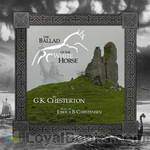 The Ballad of the White Horse
The Ballad of the White Horse
An English epic poem that follows the exploits of Alfred the Great in his defense of Christian civilization in England from the heathen nihilism of the North. Following a string of defeats at the hands of the invading Danes, a vision from heaven in the river island of Athelney fills Alfred with joy and hope. Though it gives no promise of victory in the coming struggle, it inspires him to rally his chieftains for a last stand against the invading hordes. His adventures lead throughout the country... | |
By: Joseph Conrad (1857-1924) | |
|---|---|
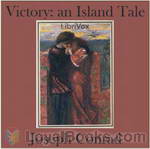 Victory: An Island Tale
Victory: An Island Tale
Recollections of the life of Axel Heyst, one-time manager of the liquidated Tropical Belt Coal Company in a fictitious island in the Pacific. After retreating from society in response to his professional failures, the misanthrope is drawn back by a romantic affair. (Introduction by S. Kovalchik) | |
By: Joel Chandler Harris (1848-1908) | |
|---|---|
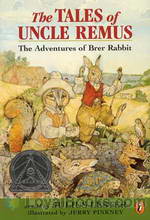 Uncle Remus
Uncle Remus
Bearing a striking resemblance to Aesop of Aesop's Fables fame, American author Joel Chandler Harris' Uncle Remus is also a former slave who loves to tell simple and pithy stories. Uncle Remus or to give it its original title, Uncle Remus: His Songs and His Sayings was published in late 1880 and received instant acclaim. The book was reviewed in hundreds of journals and newspapers across the country, leading to its immense success, both critical and financial. “Remus” was originally a fictional character in a newspaper column... | |
By: Willa Sibert Cather (1873-1947) | |
|---|---|
 The Song of the Lark
The Song of the Lark
| |
By: P. G. Wodehouse (1881-1975) | |
|---|---|
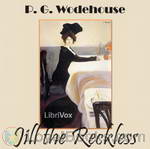 Jill the Reckless
Jill the Reckless
Jill had money, Jill was engaged to be married to Sir Derek Underhill. Suddenly Jill becomes penniless, and she is no longer engaged. With a smile, in which there is just a tinge of recklessness, she refuses to be beaten and turns to face the world. Instead she goes to New York and becomes a member of the chorus of "The Rose of America," and Mr. Wodehouse is enabled to lift the curtain of the musical comedy world. There is laughter and drama in _Jill the Reckless_, and the action never flags from the moment that Freddie Rooke confesses that he has had a hectic night, down to the point where Wally says briefly "Let 'em," which is page 313... | |
By: Rabindranath Tagore (1861-1941) | |
|---|---|
 First Jasmines
First Jasmines
Rabindranath Tagore, was a Bengali polymath who reshaped Bengali literature and music, as well as Indian art with Contextual Modernism in the late 19th and early 20th centuries. Author of Gitanjali and its "profoundly sensitive, fresh and beautiful verse", he became the first non-European to win the Nobel Prize in Literature in 1913. In translation his poetry was viewed as spiritual and mercurial; however, his "elegant prose and magical poetry" remain largely unknown outside Bengal. Tagore introduced new prose and verse forms and the use of colloquial language into Bengali literature, thereby freeing it from traditional models based on classical Sanskrit... | |
By: Israel Zangwill (1864-1926) | |
|---|---|
 Merely Mary Ann
Merely Mary Ann
| |
By: George Manville Fenn (1831-1909) | |
|---|---|
 The Queen's Scarlet The Adventures and Misadventures of Sir Richard Frayne
The Queen's Scarlet The Adventures and Misadventures of Sir Richard Frayne
| |
By: W. S. Gilbert (1836-1911) | |
|---|---|
 The Bab Ballads
The Bab Ballads
The Bab Ballads are a collection of light verse by W. S. Gilbert, illustrated with his own comic drawings. Gilbert wrote the Ballads before he became famous for his comic opera librettos with Arthur Sullivan. In writing the Bab Ballads, Gilbert developed his unique “topsy-turvy” style, where the humour was derived by setting up a ridiculous premise and working out its logical consequences, however absurd. The Ballads also reveal Gilbert’s cynical and satirical approach to humour. They became famous on their own, as well as being a source for plot elements, characters and songs that Gilbert would recycle in the Gilbert and Sullivan operas... | |
By: P. G. Wodehouse (1881-1975) | |
|---|---|
 The Little Warrior
The Little Warrior
| |
By: Robert Bridges (1844-1930) | |
|---|---|
 A Practical Discourse on Some Principles of Hymn-Singing
A Practical Discourse on Some Principles of Hymn-Singing
| |
By: Ludwig van Beethoven (1770-1827) | |
|---|---|
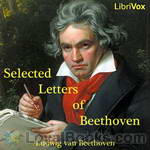 Selected Letters of Beethoven
Selected Letters of Beethoven
A selection of Beethoven’s letters from the compilation by Dr. Ludwig Nohl and translated by Lady Grace Wallace. | |
By: Friedrich Nietzsche (1844-1900) | |
|---|---|
 Case of Wagner / Nietzsche Contra Wagner / Selected Aphorisms
Case of Wagner / Nietzsche Contra Wagner / Selected Aphorisms
A collection of three of Nietzsche's writings concerning the music of Wagner. In particular, he relates Wagner's music as degenerate, unrefined and unintelligent and relates it to a gradually degenerating German culture and society. The translator provides a detailed introduction. | |
By: John Meade Falkner (1858-1932) | |
|---|---|
 The Lost Stradivarius
The Lost Stradivarius
The Lost Stradivarius (1895), by J. Meade Falkner, is a short novel of ghosts and the evil that can be invested in an object, in this case an extremely fine Stradivarius violin. After finding the violin of the title in a hidden compartment in his college rooms, the protagonist, a wealthy young heir, becomes increasingly secretive as well as obsessed by a particular piece of music, which seems to have the power to call up the ghost of its previous owner. Roaming from England to Italy, the story involves family love, lordly depravity, and the tragedy of obsession | |
By: George Bernard Shaw (1856-1950) | |
|---|---|
 The Perfect Wagnerite
The Perfect Wagnerite
The Perfect Wagnerite: A Commentary on the Niblung's Ring (originally published London, 1898) is a philosophical commentary on Richard Wagner's Der Ring des Nibelungen, by the Irish writer George Bernard Shaw. Shaw offered it to those enthusiastic admirers of Wagner who "were unable to follow his ideas, and do not in the least understand the dilemma of Wotan." He interprets the Ring in Marxian terms as an allegory of the collapse of capitalism from its internal contradictions. Musicologically, his... | |
By: Friedrich Kerst | |
|---|---|
 Mozart, The Man and the Artist as Revealed in His Own Words
Mozart, The Man and the Artist as Revealed in His Own Words
Wolfgang Amadeus Mozart. His name is one of the most recognizable names in history and one of the most enduring of composers. At age 5, this “wunderkinder” took to the stage and began his life as a prolific and celebrated creator-genius of such luminous works the world has not known since. This collection of morsels taken from his personal letters is engaging and gives a look into the mind of the boy wonder. Was he mad? Was he miraculous? | |
By: Lilli Lehmann (1848-1929) | |
|---|---|
 How to Sing (Meine Gesangskunst)
How to Sing (Meine Gesangskunst)
Lilli Lehmann, born Elisabeth Maria Lehmann, was a German operatic soprano of phenomenal versatility. She was also a voice teacher.She wrote: "Every serious artist has a sincere desire to help others reach the goal—the goal toward which all singers are striving: to sing well and beautifully." This is the 1915 second (expanded) edition of her book and includes many illustrations and diagrams, both physiological and musical, which the listener will find useful.Much of Lilli Lehmann's advice is complex and demanding - the standards which she set for herself were beyond the highest aspirations of most professional singers... | |
 How to Sing [Meine Gesangskunst]
How to Sing [Meine Gesangskunst]
| |
By: Horatio Alger (1832-1899) | |
|---|---|
 The Young Musician ; Or, Fighting His Way
The Young Musician ; Or, Fighting His Way
| |
By: Horatio Alger, Jr. (1832-1899) | |
|---|---|
 Grand'ther Baldwin's Thanksgiving, with Other Ballads and Poems
Grand'ther Baldwin's Thanksgiving, with Other Ballads and Poems
Horatio Alger, better known for his juvenile fiction, also penned some great poetry. His Ballads, including the 8 war poems and his odes, are collected in this volume. | |
By: Karl Wilson Gehrkens (1882-1975) | |
|---|---|
 Music Notation and Terminology
Music Notation and Terminology
Until relatively recently, music students at all levels of study—from the conservatories to public schools—had few resources available for the formal study of musical notation and terminology in the classroom. In fact, it was not until 1914, when Professor Karl Gehrkens at the Oberlin School of Music published this compilation of class notes and sources he collected over the years, that a uniform text became available for schools and universities everywhere. Since the publication of this monumental work, similar textbooks have emerged, but Dr... | |
 Essentials in Conducting
Essentials in Conducting
| |
By: Richard Wagner (1813-1883) | |
|---|---|
 Tristan and Isolda Opera in Three Acts
Tristan and Isolda Opera in Three Acts
| |
 My Life — Volume 1
My Life — Volume 1
| |
 On Conducting (Üeber Das Dirigiren) : a Treatise on Style in the Execution of Classical Music,
On Conducting (Üeber Das Dirigiren) : a Treatise on Style in the Execution of Classical Music,
| |
By: Hélène A. Guerber (1859-1929) | |
|---|---|
 Stories of the Wagner Opera
Stories of the Wagner Opera
| |
By: Kate Douglas Smith Wiggin (1856-1923) | |
|---|---|
 Bluebeard; a musical fantasy
Bluebeard; a musical fantasy
| |
By: Romain Rolland (1866-1944) | |
|---|---|
 Musicians of To-Day
Musicians of To-Day
| |
By: John Addington Symonds (1840-1893) | |
|---|---|
 Wine, Women, and Song Mediaeval Latin Students' songs; Now first translated into English verse
Wine, Women, and Song Mediaeval Latin Students' songs; Now first translated into English verse
| |
By: Gustav Kobbé (1857-1918) | |
|---|---|
 How to Appreciate Music
How to Appreciate Music
Originally published in 1906, this book is essentially a how to guide on music appreciation. Includes sections on the pianoforte, orchestral, and vocal music. Good for anyone who wishes for a greater appreciation of the wonders of music. | |
 The Loves of Great Composers
The Loves of Great Composers
| |
 The Pianolist A Guide for Pianola Players
The Pianolist A Guide for Pianola Players
| |
By: Osborn H. Oldroyd (1842-1930) | |
|---|---|
 The Good Old Songs We Used to Sing, '61 to '65
The Good Old Songs We Used to Sing, '61 to '65
| |
By: Nicola A. (Nicola Aloysius) Montani (1880-1948) | |
|---|---|
 The St. Gregory Hymnal and Catholic Choir Book
The St. Gregory Hymnal and Catholic Choir Book
| |
By: Wolfgang Amadeus Mozart (1756-1791) | |
|---|---|
 The Letters of Wolfgang Amadeus Mozart — Volume 01
The Letters of Wolfgang Amadeus Mozart — Volume 01
| |
By: Rupert Hughes (1872-1956) | |
|---|---|
 Contemporary American Composers Being a Study of the Music of This Country
Contemporary American Composers Being a Study of the Music of This Country
| |
By: John Gay (1685-1732) | |
|---|---|
 The Beggar's Opera
The Beggar's Opera
| |
By: Franz Liszt (1811-1886) | |
|---|---|
 Life of Chopin
Life of Chopin
Chopin was a romantic era Polish composer. This work is a memoir by Liszt who knew Chopin both as man and artist. This memoir gives a unique understanding to the psychological character of the compositions of Chopin. It also offers Liszt's insight into some of Chopin's polonaises, especially the grand polonaise in F sharp minor. Liszt explains the strange emotion "ZAL" which is inclosed in his compositions. Then, presents a brief sketch on the lives of other great people in Chopin's circle. After that, Liszt discusses Chopin's fame and early life. Finally, Liszt gives a detailed account on Chopin's sufferings due to ill health and the unfortunate departure of the great composer. | |
 Letters of Franz Liszt -- Volume 1 from Paris to Rome: Years of Travel as a Virtuoso
Letters of Franz Liszt -- Volume 1 from Paris to Rome: Years of Travel as a Virtuoso
| |
 Correspondence of Wagner and Liszt — Volume 1
Correspondence of Wagner and Liszt — Volume 1
| |
By: Henry Edward Krehbiel (1854-1923) | |
|---|---|
 How to Listen to Music
How to Listen to Music
This book is "not written for professional musicians, but for untaught lovers of the art". It gives broad instruction on composers, styles, instruments, venues - and when to believe the critics. | |
 A Book of Operas Their Histories, Their Plots, and Their Music
A Book of Operas Their Histories, Their Plots, and Their Music
| |
 A Second Book of Operas
A Second Book of Operas
| |
 Chapters of Opera Being historical and critical observations and records concerning the lyric drama in New York from its earliest days down to the present time
Chapters of Opera Being historical and critical observations and records concerning the lyric drama in New York from its earliest days down to the present time
| |
By: Richard Runciman Terry (1865-1938) | |
|---|---|
 The Shanty Book, Part I, Sailor Shanties
The Shanty Book, Part I, Sailor Shanties
| |
By: Hector Berlioz (1803-1869) | |
|---|---|
 The Orchestral Conductor Theory of His Art
The Orchestral Conductor Theory of His Art
| |
By: George Hart (1839-1891) | |
|---|---|
 The Violin Its Famous Makers and Their Imitators
The Violin Its Famous Makers and Their Imitators
| |
By: Camille Saint-Saëns (1835-1921) | |
|---|---|
 Musical Memories
Musical Memories
| |
 On the Execution of Music, and Principally of Ancient Music
On the Execution of Music, and Principally of Ancient Music
| |
By: Friedrich Wieck (1785-1873) | |
|---|---|
 Piano and Song
Piano and Song
This book talks about teaching, learning and performing on the piano in a delightful style, alternating between conversation and instruction. As he was the father of Clara Schumann and Robert Schumann's teacher, need I say more? | |
By: Mary Schell Hoke Bacon (1870-1934) | |
|---|---|
 Operas Every Child Should Know Descriptions of the Text and Music of Some of the Most Famous Masterpieces
Operas Every Child Should Know Descriptions of the Text and Music of Some of the Most Famous Masterpieces
| |
By: Nicola Francesco Haym (1678-1729) | |
|---|---|
 Amadigi di Gaula Amadis of Gaul
Amadigi di Gaula Amadis of Gaul
| |
By: Isaac Watts (1674-1748) | |
|---|---|
 A Short Essay Toward the Improvement of Psalmody
A Short Essay Toward the Improvement of Psalmody
| |
By: William S. Gilbert (1836-1911) | |
|---|---|
 The Pirates of Penzance
The Pirates of Penzance
The Pirates of Penzance; or, The Slave of Duty is a comic opera in two acts, with music by Arthur Sullivan and libretto by W. S. Gilbert. The story concerns Frederic, who, having completed his 21st year, is released from his apprenticeship to a band of tender-hearted pirates. He meets Mabel, the daughter of Major-General Stanley, and the two young people fall instantly in love. Frederic finds out, however, that he was born on 29 February, and so, technically, he only has a birthday each leap year... | |
By: Arnold Kennedy (1853-1938) | |
|---|---|
 Merry Clappum Junction
Merry Clappum Junction
This is a jolly little book about a little boy, a dog, a train and a house. But not an ordinary train, oh no, and not an ordinary house either! And there are songs, too. The Preface is short, dull and only for the grown-ups. | |
By: Percy Goetschius (1853-1943) | |
|---|---|
 Lessons in Music Form A Manual of Analysis of All the Structural Factors and Designs Employed in Musical Composition
Lessons in Music Form A Manual of Analysis of All the Structural Factors and Designs Employed in Musical Composition
| |
By: W. S. B. Mathews (1837-1912) | |
|---|---|
 Popular History of the Art of Music
Popular History of the Art of Music
Preface by W.S.B. Mathews: I have here endeavored to provide a readable account of the entire history of the art of music, within the compass of a single small volume, and to treat the luxuriant and many-sided later development with the particularity proportionate to its importance, and the greater interest appertaining to it from its proximity to the times of the reader.The range of the work can be most easily estimated from the Table of Contents (pages 5-10). It will be seen that I have attempted to cover the same extent of history, in treating of which the standard musical histories of Naumann, Ambros, Fétis and others have employed from three times to ten times as much space... | |
By: James Francis Cooke (1875-1960) | |
|---|---|
 Great Pianists on Piano Playing Study Talks with Foremost Virtuosos
Great Pianists on Piano Playing Study Talks with Foremost Virtuosos
| |
By: William S. B. Mathews (1837-1912) | |
|---|---|
 The Masters and their Music A series of illustrative programs with biographical, esthetical, and critical annotations
The Masters and their Music A series of illustrative programs with biographical, esthetical, and critical annotations
| |
By: Walter Raymond Spalding (1865-1962) | |
|---|---|
 Music: An Art and a Language
Music: An Art and a Language
| |
By: Thomas D'Urfey (1653-1723) | |
|---|---|
 Wit and Mirth: or Pills to Purge Melancholy, Vol. 5 of 6
Wit and Mirth: or Pills to Purge Melancholy, Vol. 5 of 6
| |
By: James Huneker (1860-1921) | |
|---|---|
 Chopin: The Man and His Music
Chopin: The Man and His Music
A biography of the Polish composer and virtuoso pianist Frédéric Chopin and a critical analysis of his work by American music writer and critic James Huneker. | |
By: Henry Charles Lahee (1856-1953) | |
|---|---|
 Famous Violinists of To-day and Yesterday
Famous Violinists of To-day and Yesterday
| |
By: James Huneker (1857-1921) | |
|---|---|
 Old Fogy His Musical Opinions and Grotesques
Old Fogy His Musical Opinions and Grotesques
| |
By: Henry Charles Lahee (1856-1953) | |
|---|---|
 Annals of Music in America A Chronological Record of Significant Musical Events
Annals of Music in America A Chronological Record of Significant Musical Events
| |
By: James Huneker (1857-1921) | |
|---|---|
 Melomaniacs
Melomaniacs
| |
By: Thomas Fillebrown (1836-1908) | |
|---|---|
 Resonance in Singing and Speaking
Resonance in Singing and Speaking
| |
By: Edward W. (Edward Woodall) Naylor (1867-1934) | |
|---|---|
 Shakespeare and Music With Illustrations from the Music of the 16th and 17th centuries
Shakespeare and Music With Illustrations from the Music of the 16th and 17th centuries
| |
By: Wesley Mills (1847-1915) | |
|---|---|
 Voice Production in Singing and Speaking Based on Scientific Principles (Fourth Edition, Revised and Enlarged)
Voice Production in Singing and Speaking Based on Scientific Principles (Fourth Edition, Revised and Enlarged)
| |
By: George Laing Miller | |
|---|---|
 The Recent Revolution in Organ Building Being an Account of Modern Developments
The Recent Revolution in Organ Building Being an Account of Modern Developments
| |
By: Frederick Herman Martens (1874-1932) | |
|---|---|
 Violin Mastery Talks with Master Violinists and Teachers
Violin Mastery Talks with Master Violinists and Teachers
| |
By: Florence Akin (1878-) | |
|---|---|
 Opera Stories from Wagner
Opera Stories from Wagner
| |
By: George P. Upton (1834-1919) | |
|---|---|
 The Standard Oratorios Their Stories, Their Music, And Their Composers
The Standard Oratorios Their Stories, Their Music, And Their Composers
| |
 The Standard Operas (12th edition) Their Plots, Their Music, and Their Composers
The Standard Operas (12th edition) Their Plots, Their Music, and Their Composers
| |
By: Pietro Mascagni | |
|---|---|
 Zanetto; and Cavalleria Rusticana
Zanetto; and Cavalleria Rusticana
| |
By: John F. Runciman (1866-1916) | |
|---|---|
 Old Scores and New Readings Discussions on Music & Certain Musicians
Old Scores and New Readings Discussions on Music & Certain Musicians
| |
 Richard Wagner Composer of Operas
Richard Wagner Composer of Operas
| |
 Purcell
Purcell
| |
 Wagner
Wagner
| |
 Haydn
Haydn
| |
By: Alice C. (Alice Cunningham) Fletcher (1838-1923) | |
|---|---|
 Indian Games and Dances with Native Songs
Indian Games and Dances with Native Songs
| |
By: Charles Rogers (1825-1890) | |
|---|---|
 Modern Scottish Minstrel
Modern Scottish Minstrel
Subtitled "Songs of Scotland of the Past Half-Century, with Memoirs of the Poets, and Sketches and Specimens in English Verse of the Most Celebrated Modern Gaelic Bards." | |
By: Friedrich Johann Lehmann (1866-) | |
|---|---|
 A Treatise on Simple Counterpoint in Forty Lessons
A Treatise on Simple Counterpoint in Forty Lessons
| |
By: William Henry Frost (1863-1902) | |
|---|---|
 The Wagner Story Book Firelight Tales of the Great Music Dramas
The Wagner Story Book Firelight Tales of the Great Music Dramas
| |
By: Josephine Preston Peabody (1874-1922) | |
|---|---|
 After Music
After Music
Josephine Preston Peabody was an American poet and dramatist. She was born in New York and educated at the Girls’ Latin School, Boston, and at Radcliffe College. | |
By: Thomas Washington Talley | |
|---|---|
 Negro Folk Rhymes Wise and Otherwise: With a Study
Negro Folk Rhymes Wise and Otherwise: With a Study
| |
By: Margaret Blake Alverson (1836-1923) | |
|---|---|
 Sixty Years of California Song
Sixty Years of California Song
| |
By: William Lyon Phelps (1865-1943) | |
|---|---|
 Songs of the Cattle Trail and Cow Camp
Songs of the Cattle Trail and Cow Camp
| |
By: Émile Jaques-Dalcroze (1865-1950) | |
|---|---|
 The Eurhythmics of Jaques-Dalcroze
The Eurhythmics of Jaques-Dalcroze
| |
By: Francis E. (Francis Edward) Howard (1858-) | |
|---|---|
 The Child-Voice in Singing treated from a physiological and a practical standpoint and especially adapted to schools and boy choirs
The Child-Voice in Singing treated from a physiological and a practical standpoint and especially adapted to schools and boy choirs
| |
By: Lawrence Gilman (1878-1939) | |
|---|---|
 Debussy's Pelléas et Mélisande A Guide to the Opera with Musical Examples from the Score
Debussy's Pelléas et Mélisande A Guide to the Opera with Musical Examples from the Score
| |
 Edward MacDowell
Edward MacDowell
| |
By: James T. (James Thomas) Lightwood (1856-1944) | |
|---|---|
 Charles Dickens and Music
Charles Dickens and Music
| |